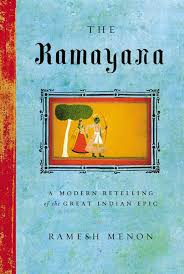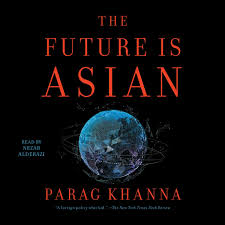 The New York Times published an op-ed, How British Feminism Became Anti-Trans, where India implicitly makes a showing:
The New York Times published an op-ed, How British Feminism Became Anti-Trans, where India implicitly makes a showing:
It’s also worth noting that the obsession with supposed “biological realities” of people like Ms. Parker are part of a long tradition of British feminism interacting with colonialism and empire. Imperial Britain imposed policies to enforce heterosexuality and the gender binary, while simultaneously constructing the racial “other” as not only fundamentally different, but freighted with sexual menace; from there, it’s not a big leap to see sexual menace in any sort of “other,” and “biological realities” as essential and immutable….
These views are very common on the cultural Left. When progressive social activists make these assertions, and I argue that they are factually wrong, I’ve often encounter surprise and annoyance. There are two things I suspect going on here:
– These people are not genuine propagandists, they actually believe their own fictions. Faced with facts that are novel to them don’t know how to react. They live in a factual bubble where it is taken for granted that the idea of binary gender as a dominant paradigm was introduced by Westerners to South Asians, whose own conceptions were fluid, open, and tolerant.
– The facts of the history of non-Western cultures are fundamentally irrelevant because they exist only to support narratives relevant within Western cultures. Those narratives and the trajectory of Western culture is their true passion. Their fundamental Eurocentrism means that falsehood about non-Western cultures is not particularly of great concern. That is not “their history.” Minor details to be ignored and brushed aside.
 Gibbon famously asserted that the Pope, and implicitly the Roman Catholic Church, was the “ghost of the Roman Empire.” A living, breathing, vestige of an institution and society long gone. Much of modern Western Left social progressivism, informed by critical theory and post-colonialism, is a ghost of 19th and 20th-century empire. It is the warped inversion and reflection of Western chauvinism and populism.
Gibbon famously asserted that the Pope, and implicitly the Roman Catholic Church, was the “ghost of the Roman Empire.” A living, breathing, vestige of an institution and society long gone. Much of modern Western Left social progressivism, informed by critical theory and post-colonialism, is a ghost of 19th and 20th-century empire. It is the warped inversion and reflection of Western chauvinism and populism.
It is highly peculiar to me that on the precipice of the 21st Asian age Western intellectuals bask and wallow in the reflected glory of Victorian-era empires as if they are determinative of all the goings on today. Part of this is surely due to the reality that intellectual currents are lagging indicators, and empires always persist longer in memory and self-regard than in reality. And part of it is the human needs for “noble savages” and “pure” Others against which their own sins may be measured and contrasted.